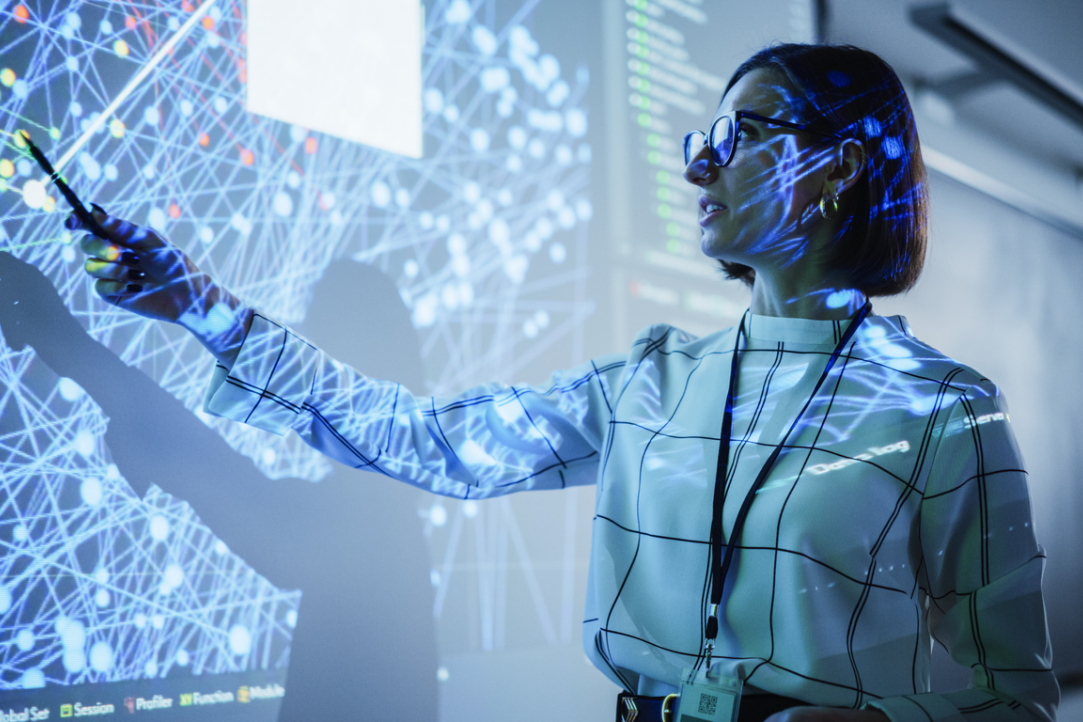White Papers of AI Conformity Assessment Published on HSE University Website

The Russian Technical Committee for the Standardization of ‘Artificial intelligence’ (TC164), together with the Chamber for Indo Russo Technology Collaboration and the RUSSOFT Non-profit Partnership of Software Developers, has published new White Papers related to Artificial Intelligence Conformity Assessment. It reflects the approaches to the standardization and ethical regulation of AI technologies in two pilot industries — healthcare and agriculture.
The Russian Technical Committee on Standardization ‘Artificial intelligence’ (TC 164) was established by order of Rosstandart in 2019. It regulates cooperation between interested organisations and the government in carrying out work on national, interstate and international standardization. Sergey Garbuk, Director for Research Projects at HSE University, chairs the committee.
Work on the White Papers project started in 2023 after the signing of a Memorandum of Understanding between CIRTC, TC164 and RUSSOFT.
The published analytical report consists of five sections. The first one is dedicated to the goals agreed upon by two states, Russia and India, in the field of conformity assessment of AI technologies, and more specifically, the conformity assessment of AI in healthcare and agriculture. The second section contains a list of AI tasks in both industries. The third section lists the existing AI solutions in the Russian and Indian markets in pilot industries. The fourth section highlights relevant national and international standards. The last section is devoted to approaches to the ethical regulation of artificial intelligence agreed upon by the two countries, as well as international approaches in this area.
The authors of the White Paper are Indian and Russian experts, including scientists from HSE University.
As part of the pilot project, the parties plan to develop quality assessment metrics for AI technologies participating in the pilot experiment and the quality requirements for applied AI technologies, including comparison with a human operator. The results presume unified standardization documents for Russia and India, which establish requirements for testing particular applied AI technologies in the field of healthcare and agriculture.
The first results of Russian-Indian cooperation in the field of standardization and conformity assessment of AI technologies will be presented at the summit of the heads of national standardization bodies of the BRICS member states, which Russia will be chairing in summer 2024.
After completing the pilot experiment, the researchers plan to create a joint laboratory for AI testing, as well as work on promoting testing methods to the level of international organisations for standardization (ISO/IEC, ITU).

Director for Research Projects at HSE University, Chairman of TC 164
We can overcome barriers associated with the use of artificial intelligence in areas where an incorrect decision can lead to threats to human health and life, and significant environmental and economic damage, through the standardization of requirements for testing methods of responsible intelligent systems, as well as through the objective confirmation of compliance of systems with established requirements in the field of functionality and safety.
Sergey Garbuk
See also:
Registration for Russian Olympiad in Artificial Intelligence 2025 Now Open
Registration for the fifth season of the Russian Olympiad in Artificial Intelligence has opened. This year, the competition has gained international status. The event is open to students in the 8–11 grades both in Russia and abroad. The winners will receive benefits when applying to Russian universities.
Global AI Trends Discussed at International Foresight Workshop at HSE University
At an international foresight workshop on artificial intelligence held at HSE University, Russian and foreign scholars discussed the trends and challenges arising from the rapid development of AI.
HSE Students Win International Olympiad in Artificial Intelligence
In the finals of the olympiad, the Russian team competed with 300 talented schoolchildren from 61 countries, including Australia, Brazil, Hungary, China, Mexico, the United Arab Emirates, Poland, Serbia, Singapore, the USA, Sweden, and Japan. The finals included team and individual rounds. In the team round, the Russian team made it into the top 10, winning a silver medal. In the individual competition, Russian schoolchildren won six gold medals, one silver, and one bronze.
‘Neural Networks Can Provide Assessments As Accurate As Humans’
Voice assistants have become part of everyday life. They can plan routes, play music and films, and answer questions. But the quality of their speech requires assessment. To address this, students of the Applied Artificial Intelligence Workshop at the HSE University and VK Engineering and Mathematics Schoolhave developed neural networks capable of evaluating speech synthesis.
HSE to Entrust Routine CPD Programme Development to AI
HSE University, together with the EdTech company CDO Global, is launching AI-based constructors to streamline the design of continuing professional development (CPD) courses. The new service will automate the preparation of teaching materials and assessment tools, significantly reducing the time and resources required of lecturers and instructional designers.
HSE University Becomes Absolute Leader in AI Alliance Ranking of Universities
TheAI Alliance Russia has announced a new ranking of Russian universities based on the quality of education in the field of AI. A total of 203 universities from 68 Russian regions participated in the ranking. HSE University was the first to join the highest A++ group.
HSE University and MTS Join Forces to Combat Deepfakes and Train AI to Create Bespoke Video Content
HSE University and MTS Web Services (MWS) have announced the launch of a series of joint research initiatives in the field of artificial intelligence technologies. These efforts aim to develop innovative solutions in cybersecurity, multimodal content generation, and big data analysis. The project’s leading institution is the HSE Tikhonov Moscow Institute of Electronics and Mathematics (HSE MIEM), under the overall coordination of the HSE AI Research Centre.
HSE University Brings Together Researchers at International AI Summer Institute in Shanghai
In early July 2025, the International Summer Institute on Artificial Intelligence in Education took place in Shanghai. It was organised by the HSE Institute of Education in cooperation with East China Normal University (ECNU). More than 50 early-career researchers and keynote speakers from nine countries—ranging from Russia and China to Canada and Singapore—gathered to share the latest findings from their work and to forge new international partnerships.
‘Economic Growth Without the AI Factor Is No Longer Possible’
The International Summer Institute on AI in Education has opened in Shanghai. The event is organised by the HSE Institute of Education in partnership with East China Normal University (ECNU). More than 50 participants and key speakers from over ten countries across Asia, Europe, North and South America have gathered to discuss the use of AI technologies in education and beyond.
Recommender Systems: New Algorithms and Current Practices
The AI and Digital Science Institute at the HSE Faculty of Computer Science hosted a conference focused on cutting-edge recommender system technologies. In an atmosphere of active knowledge sharing among leading industry experts, participants were introduced to the latest advancements and practical solutions in recommender model development.


